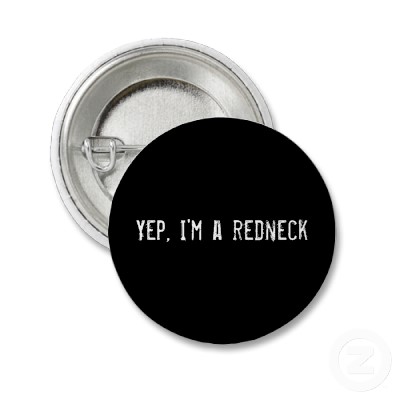In January and February 2008 my wife and I did a road trip the length of the country, twice — from Wellington to Bluff, back to Wellington, up to Cape Reinga, and back to Wellington again. For most of the trip, we flew a small Tino Rangatiratanga flag, one of those small ones which clip onto a car window. It was partly a matter of literally “flying the flag” of my political views at this time of year — I must note, with some misgivings on her part — and partly an experiment to see what response it would get.

(Photo by Adrienne Rewi — because its surprisingly hard to take a shot of your own car-flag while driving and we didn’t take one. Used without permission but with thanks — I’ll take it down on request.)
Most obviously, traffic seemed to treat us somewhat differently, though this might be down to regional and seasonal driving variations. Some cars honked, some flashed their lights or waved; others rode closer behind or seemed to overtake more aggressively. Many times I saw drivers staring or otherwise reacting with surprise at seeing a couple of PÄkehÄ in a white station wagon flying such a flag. Truck drivers were particularly well-represented in all these reactions; the road is their territory, and visual vehicular statements of identity or loyalty mean a lot to them.
This was especially true when driving around Otago and Southland with my ZZ Top-bearded and bemulleted uncle in the car. Mostly in the South, though, people were cool but not hostile, and too polite to mention anything they might have thought. The response, both positive and negative, was strongest in the central North Island, Northland and the Bay of Plenty. In Taumarunui we got into town late and a group of local MÄori were drinking and singing karaoke at the hotel where we stopped. They were intrigued and after a few friendly waves and “kia ora bro”s a couple of kuia came over to suss us out — asking us who we were, where we were from, and so on. Learning that we were from Whanganui, and that I have family connections to Jerusalem put it in context and they treated us with easy amiability. Their only mention of the flag was to remark that it was probably a pretty good guard against theft; said with warmth and irony and humour. There were several of these sort of encounters. Later, stopping for side-of-the-road hÄngi on the road between Wellsford and Whangarei, the young guy gave us $2 off and claimed it was because it was the last, though I could see there was plenty left and it was only just lunch time. Especially in the Far North, and through the Bay of Plenty from Te Puke through Whakatane down to about Rotorua, MÄori pedestrians and kids playing near the street would shout and point and wave. Usually, this was in run-down areas, and the people waving and shouting “chur bro!” often wore gang colours.
The “anti-theft device” line was replayed unbidden in Tauranga while visiting some in-laws, though this time in all seriousness, with none of the warmth of the MÄori in Taumarunui. This was combined with a rather heated debate as to the relative merits of the Clark government, Foreshore and Seabed Act and general state of the bicultural nation. The two events were on consecutive days, and the contrast could not have been more stark.
In a couple of cases — once in Lyttelton in the carpark of the Wunderbar, and again outside a petrol station in Whitianga — we were asked by random strangers if we were MÄori, and if not, why were we flying the flag. In Lyttelton this was good-natured and curious; in the other case, the question was asked with gruff suspicion, and the answer — an explanation of what the flag means and its origin — didn’t cut any ice with the chap who looked and seemed rather like Garth George. I’ve encountered that sort of reaction before — once a guy called me a “race traitor” in Molly Malone’s because I was wearing a Tino Rangatiratanga hoodie — and that one didn’t even have the flag, just the words.
But on a trip of 7,500km on the busiest roads in the country, passing through all the main population centres at the time of our national holiday, in an election year, not long after the Urewera Terra arrests and with issues of racial separatism and colonialism very squarely on the agenda, the thing which was most obvious was how little such a statement changed anything. It reiterated to me that New Zealand is a pretty tolerant and easy society, as long as that tolerance is not stretched too far. Another example of this was this evening’s “Great Debate” on MÄori TV between celebrities and comedians and such folks on the moot “now is the time for Aotearoa to close the immigration gates”. I won’t spoil the result, because it really is worth watching (and I assume MÄori TV will put up a video), but while the moot was robustly (and often very personally) contested, it was all done in wonderful good humour. The same good humour as of a MÄori joking ruefully about MÄori crime — and the opposing siege mentality the following day. Happily, I think the former predominates in this country, and provides a sound basis for the ongoing development of a bicultural — and eventually multicultural — society.
L


 On the one hand we have a long historical pedigree, and a flag which represents the early unity of the NZ proto-state and the formal beginnings of collaboration between tangata whenua and tau iwi, but which actually represents only a small subset of the MÄori population and whose political cause (to establish a client state sympathetic to the English in their manouvres against the French) was superceded by the Treaty of Waitangi only a few years after its establishment.
On the one hand we have a long historical pedigree, and a flag which represents the early unity of the NZ proto-state and the formal beginnings of collaboration between tangata whenua and tau iwi, but which actually represents only a small subset of the MÄori population and whose political cause (to establish a client state sympathetic to the English in their manouvres against the French) was superceded by the Treaty of Waitangi only a few years after its establishment.  On the other, we have a relatively new flag, one whose symbolism and history is exclusively MÄori, rather than being part of a wider game between colonial powers; a modern flag representing modern, rather than historical aspirations but which has, to an extent, been hijacked by the radical movement.
On the other, we have a relatively new flag, one whose symbolism and history is exclusively MÄori, rather than being part of a wider game between colonial powers; a modern flag representing modern, rather than historical aspirations but which has, to an extent, been hijacked by the radical movement. 